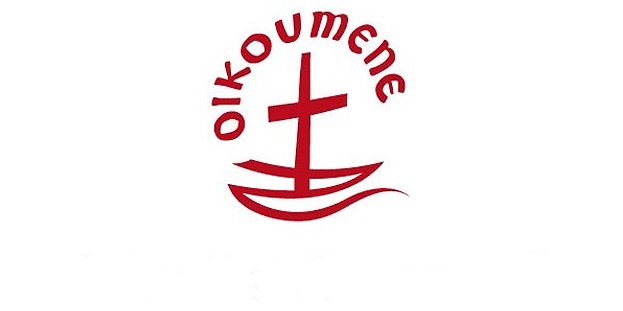WCC calls for just peace and an end to impunity in the Holy Land
 World Council of Churches (WCC) general secretary Rev. Dr Olav Fykse Tveit condemned use of excessive violence by Israeli forces against civilian protestors in Gaza during last week in which many have lost their lives or lost their loved ones, and is particularly worried that some Christians are celebrating the move of the US embassy to Jerusalem as a gift from God, despite the disruptively provocative nature of this move.
World Council of Churches (WCC) general secretary Rev. Dr Olav Fykse Tveit condemned use of excessive violence by Israeli forces against civilian protestors in Gaza during last week in which many have lost their lives or lost their loved ones, and is particularly worried that some Christians are celebrating the move of the US embassy to Jerusalem as a gift from God, despite the disruptively provocative nature of this move.
The military responses to the demonstrations in Gaza have resulted in the deaths of many people – including several children – and injuries to thousands, and the numbers are still growing. This violence and bloodshed must be condemned by the international community and must be subject to international investigation. The situation calls for a deeper understanding that lies behind these events.
The protesters are exercising their civil rights to express their objection and despair at the current situation for them as Palestinian people. The “naqba”, the catastrophe their families experienced 70 years ago, continues to cause unresolved dispossession and suffering for many Palestinians – particularly for the people of Gaza. That unarmed civilians – including children – are shot at with live ammunition, even killed, and many injured – cannot be defended legally or morally as an expression of “the right to self-defense of a state”. This must be seen as an unacceptable use of violence against people that Israel rather has a duty to respect and protect.
Jerusalem is a shared Holy City of the three religions: Judaism, Christianity and Islam. In the Holy Land, a comprehensive and sustainable peace must be based upon a two-state solution along internationally recognized borders.
The protest is against the unilateral US decision to move its embassy to the “undivided Jerusalem”. That action is against all relevant UN resolutions, and it has created a serious obstacle to any peaceful and just solution. The issue of Jerusalem has not been ‘taken off the table’, but remains one of the most difficult issues on the table for peace negotiations, made even more volatile by the US action.
Protests on 14 May coincided with the official transfer of the US embassy from Tel Aviv to Jerusalem and the 70th anniversary of the State of Israel. Protests on 15 May were marking the 70th anniversary of what Palestinians refer to as the naqba, or “catastrophe,” when hundreds of thousands of people were uprooted during Israel’s creation in 1948.
The World Council of Churches has consistently affirmed the long-held understanding that the status of the city of Jerusalem – which is of profound significance to and beloved of three faiths and two peoples – must be resolved through peaceful negotiations.
At a time such as this all actors – and particularly the powerful state of Israel and foreign states – must strive for a just peace, act with utmost respect for the sanctity of life and exercise restraint from all forms of violence, which will further escalate the ongoing tensions.
It is a very serious situation for the churches locally – and globally – that some Christians are thanking God for a decision that is so blatantly against international law and policy, so much undermining the peace process based on a common international understanding of the rights of both peoples to share Jerusalem as their capital, and so provocative to the occupied and oppressed people of Palestine. This should concern all who understand their religious faith as compelling them to work for reconciliation and peace.
It is deeply saddening that previous cautions that any unilateral decision about the future of Jerusalem would undermine the peace efforts in the Holy Land have gone unheeded, directly contributing to the current violence. This clearly could have been avoided. Further, we are deeply concerned about the repercussions that relocating the US embassy to Jerusalem will have on finding a lasting solution to the situation in the Holy Land.
We urge the international community to accelerate all efforts toward a just and viable solution which respects the aspirations of all the people living in the Holy Land in line with international conventions and resolutions. Even as the threat of an increasing spiral of violence looms large, we join our member churches in hope and prayer that efforts toward peace will overcome the present tragic violence and lead to a time when “swords shall be beaten to plowshares and spears into pruning hooks.”
The WCC expresses its solidarity with its member churches in the Holy Land, and will continue to accompany them in their work for reconciliation, justice and peace.
